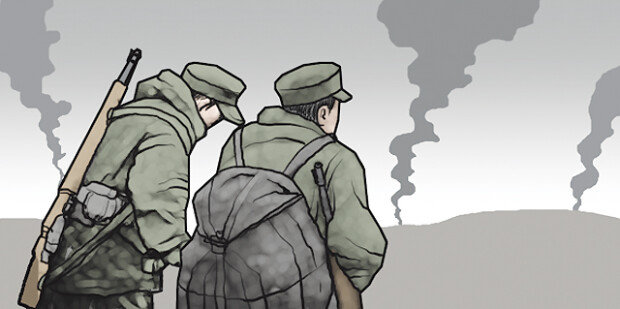Troops who lost their country
Troops who lost their country
Posted March. 12, 2019 07:50,
Updated March. 12, 2019 07:50

Back in 1944, on its way to Rome after arrival in Italy, the coalition army was faced with fierce opposition from German troops. The bloody war then is known as the battle of Montecassino, one of the largest and most severe fights during World War II. Between January and May, the coalition forces struggled in fight with Germany even while bombing the abbey in Montecassino, which even Germany considered sacred and holy. It took as many as four strikes for the coalition to take over Montecassino. Troops from various countries fought together – the United States, the United Kingdom, New Zealand, India and Gorkha District. However, it was nationless Polish and Free French soldiers who made critical contributions.
The Polish army was sent to the most critical point of battle, or the most brutal and harshest front throughout World War II. The coalition troops cornered the German army at the last stage of the battle of Normandy. Germans rushed to the last exit in fierce opposition and pressure. It was Polish troops who bound them tight at last. Polish people fought hard and furiously but they were not able to ensure their standing on the global stage as they lost their country. Afterwards, they could not have a say in determining their fate. Even worse, Polish war survivors and the rest of citizens were met with a greater crisis after the end of war.
Joseon people were forced to fight for Japanese colonialism in battles that broke out in the Pacific Ocean region. Only a few war survivors were captured by the U.S. troops as most Joseon war participants had to abide by Japan’s principle of pursuing an honorable death in war. There were only 145 captives, 128 of which were Joseon people. A total of 1,400 Joseon people were sent to war.
Joseon soldiers were spotted among Japanese troops. The United Sates was aware of the relationship with Japan and Joseon, thus imprisoning them separately. Some Joseon captives even promised to join U.S. troops to fight against Japan. There must have been a plenty of them to do so. However, the United States did not allow Joseon soldiers to make up a fight unit on grounds that it runs against the Geneva Convention. You cannot fight a war if you lose your home country. Your blood-shedding sacrifice is not allowed to translate into just treatment. This messages resonates around the March 1st Movement Day.
yes@donga.com







